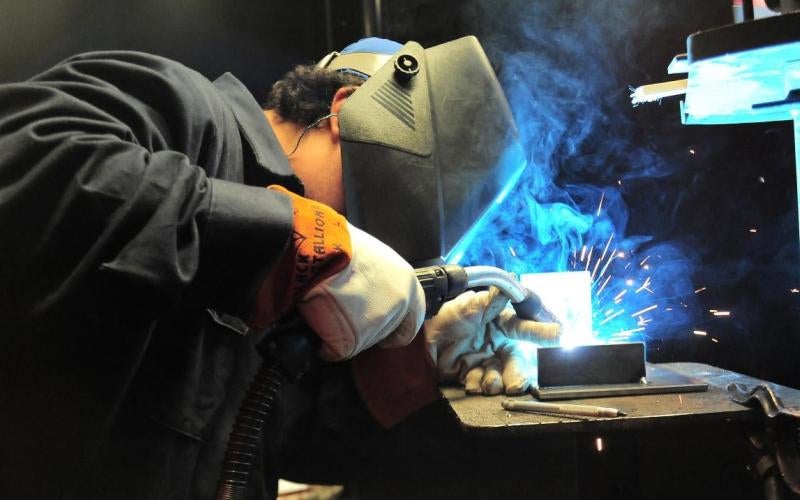
National Science Foundation awards almost $600K for SFAz+8 CXM Project
June 13, 2019Arizona Western College faculty to participate in rural community college math collaborative
Yuma, AZ (June 13, 2019) – The National Science Foundation recently awarded a $599,929 grant to the Science Foundation Arizona Center for STEM at Arizona State University (SFAz STEM) to support an Advanced Technological Education Project, entitled: Impact of System-Wide Contextualization of Math in SFAz+8 Rural Arizona Colleges on Producing More Qualified Technicians (SFAz+8 CXM).
Through this project, Arizona Western College Dean of Career and Technical Education (CTE) Reetika Dhawan and Professor of Welding Noberto Alvarado will be working alongside SFAz STEM as well as Math and CTE faculty from seven other rural Arizona community colleges to alleviate challenges students face in technical math that prevent them from completing their technical credentials. Rural colleges participating in the SFAz+8 CXM collaborative include Arizona Western College, Central Arizona College, Cochise College, Coconino Community College, Eastern Arizona College, Mohave Community College, Northland Pioneer College, and Yavapai College.
Administrators and faculty from each participating institution seek to move the needle on CTE completions across multiple technical disciplines, a feat that’s difficult for resource-limited institutions to accomplish individually.
“We are very pleased to have this opportunity to continue to facilitate this collaboration of rural STEM faculty and administrators with a focus on helping technical students successfully complete their programs with math included,” said Caroline VanIngen-Dunn, Director of SFAz STEM, and Principal Investigator for the grant.
Each college will work collaboratively to improve student success and completion in CTE programs by either embedding math knowledge and credits into their courses or contextualizing their technical math courses with modules from their most prominent technical courses. For example, Arizona Western College will explore the processes and content used in Cochise College’s contextualized Electronics Technology course (they bring in a math instructor to teach math fundamentals that coincide with the instruction of the corresponding electronics principles) and adapt it to their Electrical Solar Program.
Welding has been identified as a single common program area for all the colleges. Arizona Western College will strengthen their Math Applications for Welders course in collaboration with their math department and by exploring Central Arizona College’s Technical Math course.
As contextualized curriculum modules are developed, adapted, or implemented at each institution, they will be shared in the STEM Network, a resource and repository that can be used by other colleges. The collaborative, and each team formed around a contextualization method, will also meet monthly or as needed to share resources, data, best practices and discuss experiences with each approach.
A research study will be conducted in year three of this program to test whether the contextualized curriculum modules are helping to bridge the gap between technical concepts and the fundamental mathematical skills needed for technical jobs in Arizona. The study will examine the effects of the courses as measured by retention (course completion) and knowledge (end term course grades).
The eight rural community colleges that are part of this consortium serve diverse, underrepresented groups, and the industries they support are as varied as aerospace, defense, mining, manufacturing, automotive, construction, and agriculture. While the colleges may differ in geography and in the populations they serve, they share a common problem of math education as a barrier to completion of CTE credentials. The aim of this project is to change how students overcome these challenges and earn certificates and degrees, providing more rural, Hispanic, and Native American workers with the opportunity to join the technical workforce equipped with the credentials they need for promotion and continued employment in their community, region, and state. Industry across Arizona will benefit from increased math skills in their technician workforce and will also have a larger, regional pool of students from which to draw.
###
Caption for photo by Alex Lastra/AWC Photographer:
Through a National Science Foundation grant, Arizona Western College will be working with seven other rural community colleges to help alleviate challenges students face in technical math that prevent them from completing their technical credentials. As part of this effort, AWC will be strengthening their Math Applications for Welders Course in collaboration with the college’s math department and by exploring Central Arizona College’s Technical Math course.
